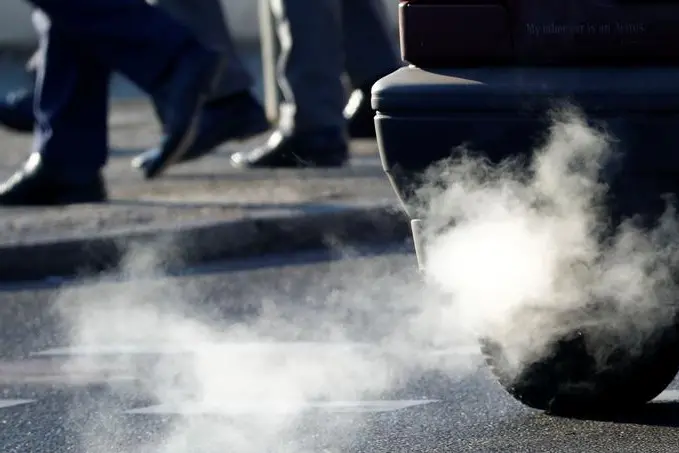PHOTO
NEW YORK - Wilbur Ross has opened a new theater in the trade war. The U.S. commerce secretary on Sunday told the Financial Times that the Trump administration will “react” if the European Union’s plan to impose the same carbon tax on imports as member states’ companies will have to pay “is in essence protectionist.” It’s not the first time the White House has turned up to wreck the global push to address rising temperatures, and this latest episode shows how hard it can be to devise local or regional attempts to solve the worldwide problem of climate change. But there is a way the EU can help marginalize the White House: allying with activist global investors.
In some ways, investors and the government are stuck in a chicken-and-egg situation. Initiatives like a carbon tax are crucial to combatting global warming. Trouble is, the long-term benefits of such changes can too often seem burdensome to companies in the short term. What’s often missing are positive incentives for them to adapt to climate risk. Investors, for example, may be willing to put money to work in certain projects – such as new carbon-lite technology for the steel and cement industries – if there’s a greater chance of success, and political support.
For their part, governments may be more inclined to carve out tax breaks and other climate-friendly policies if they know private capital is more likely to flow in. And it doesn’t have to just be in their own jurisdiction. The EU could, for example, investigate funneling some of the income from taxing carbon-heavy imports back into climate projects in the countries of origin – with investors providing advice.
The good news is that money managers who are determined to make change have more power than ever. Allianz, CalPERS and UBS are among the 370-odd members of Climate Action 100+ which now shepherd $41 trillion of assets between them after the world’s largest money manager, BlackRock, joined earlier this month. The group has already been pushing some of the largest greenhouse-gas emitters, like BP and Glencore, to cap their pollution and outline how they’ll deal with climate risk.
One of its number, UK insurer Aviva, is a lead investor on separate campaign to cajole McDonald’s, Domino’s Pizza and four other fast-food chains to set “aggressive” targets on emissions and water use. That group now has the support of those managing almost $12 trillion in assets, it said on Monday, almost doubling since its inception a year ago.
If such groups and the European Union can find ways to work together, it would make for a powerful, positive and lucrative combination – and help push climate skeptics like the Trump administration to the sidelines.
CONTEXT NEWS
- U.S. Commerce Secretary Wilbur Ross told the Financial Times on Jan. 26 that if the European Union’s plan for a carbon tax “is in its essence protectionist, like the digital taxes, we will react.”
- New European Commission President Ursula von der Leyen wants to impose the same carbon levy on imports as companies within member states will have to pay.
- On Jan. 27 an investor coalition said it was urging six major fast-food chains including McDonald’s and Restaurant Brands International QSR.TO to take faster action to commit to “aggressive targets to reduce their greenhouse gas emissions, water usage and water quality impacts of their meat and dairy supply chains.” The coalition launched its campaign a year ago, helped by global investor network FAIRR and sustainability organization Ceres and now includes investors managing $11.4 trillion of assets, up from $6.5 trillion 12 months ago.
(Editing by Lauren Silva Laughlin and Amanda Gomez) ((antony.currie@thomsonreuters.com; Reuters Messaging: antony.currie.thomsonreuters.com@reuters.net))





















